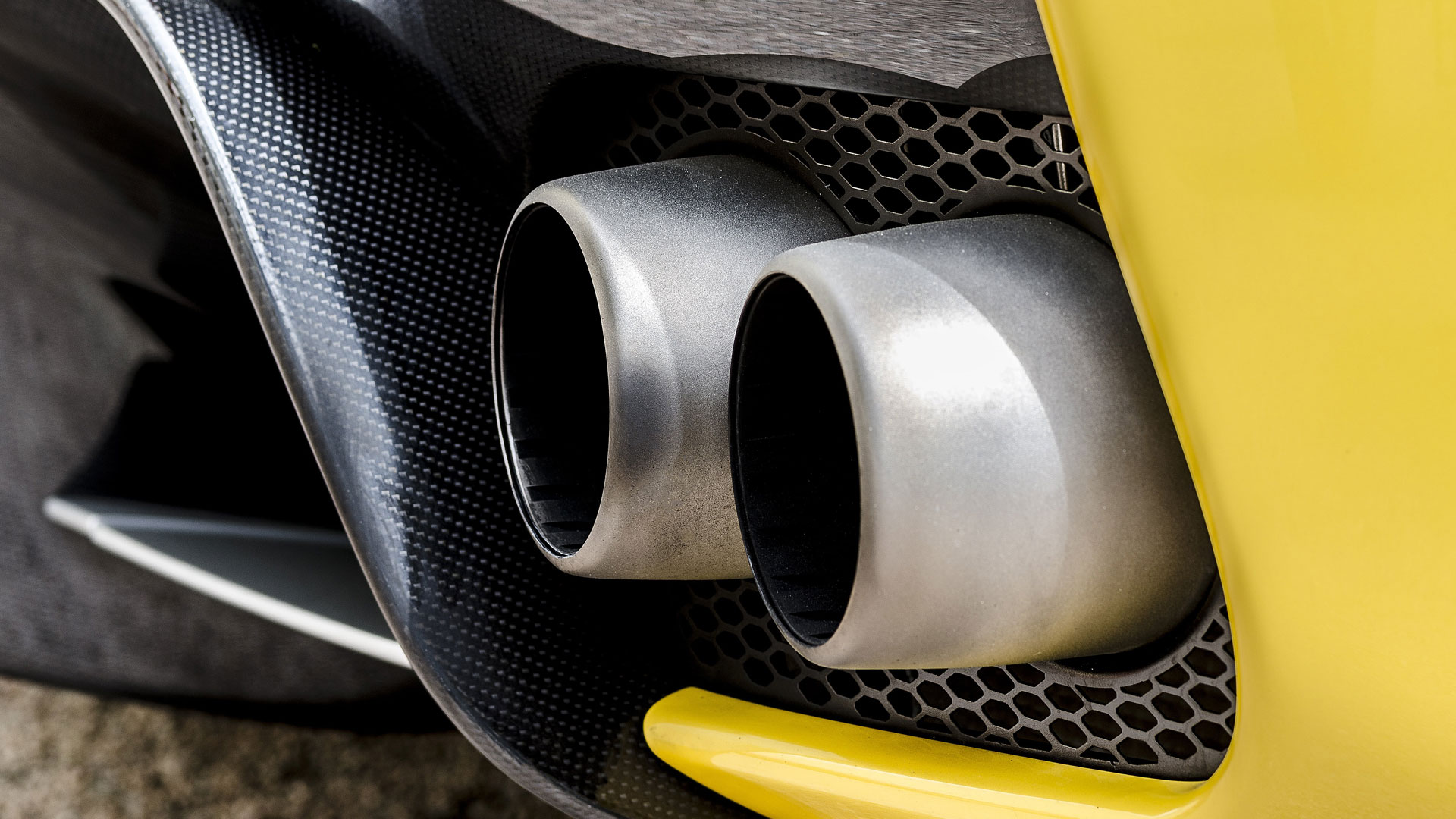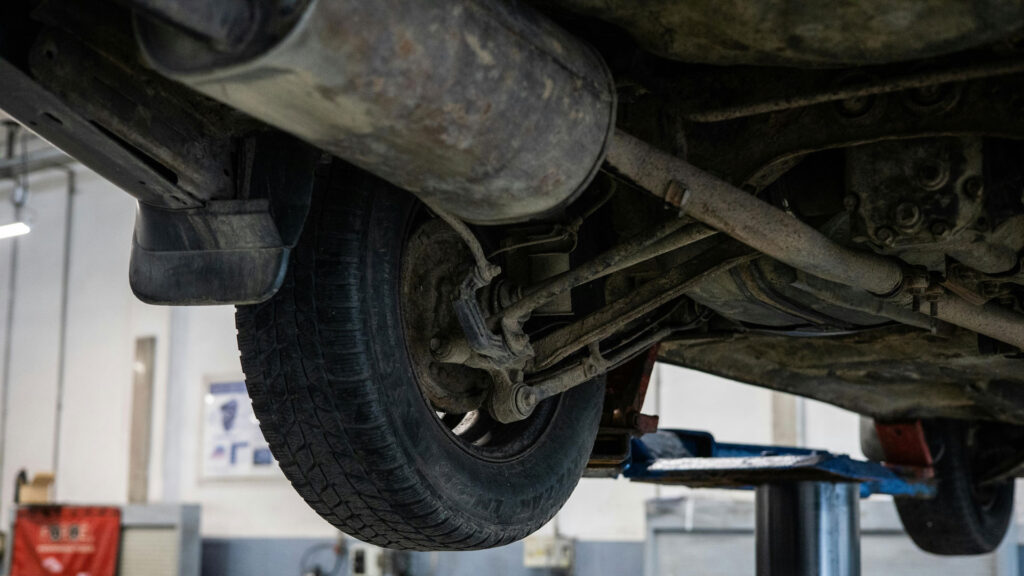How Much Does a Muffler Cost? Tips on Replacement & Repairing

Thinking about changing your car’s muffler on a budget? But not quite sure “How much does a muffler cost?”
No worries! Check out this article and swap out your muffler without breaking the bank!
What Is The Average Cost of Muffler Replacement
The total expenses will depend on whether you try to do it yourself, the type of muffler you need for your car’s make and model, and any additional equipment required.
If you want to do it yourself, you may only have to pay for the muffler’s cost which can vary between $15.
But, if you want a professional to replace your muffler, you could have to pay an additional $100 or more for labor and parts. Without taxes and any fees, you could be facing costs between $150 and $800.
How To Replace a Damage Muffler on Your Car? A Step-by-Step Guide

Replacing your muffler on a budget is super easy now, just follow the steps listed below and you’ll have it sorted like a pro in no time.
Step 1: Put on Safety Gear & Disconnect the Car Battery
Prior to starting the task, ensure that you are wearing any necessary safety equipment such as goggles or work gloves to safeguard yourself.
In order to prevent your car from starting while you are working, it is important to disconnect the car battery.
Step 2: Park your vehicle in the designated parking area.
Ensuring that your vehicle is parked on a level surface is essential.
After that, use wheel chocks to secure the wheels and prevent them from moving as you proceed to the next task.
Step 3: Lift The Car and Apply Lift Points
You will then carefully place a lift jack beneath your vehicle. Once you lift it to a sufficient height, you can then install lifting points under the car to keep it suspended while you work.
Step 4: Remove the Old Muffler
Loosen the bolts on the muffler clamps with a socket wrench, disconnect any attached piping, and take off the muffler hangers from the rubber mounts. When cutting the connected piping, only cut the pipes of the muffler.
Step 5: Measure The New Muffler
Check if the new muffler is the right size by comparing it to the existing piping. If it fits, proceed with the installation of the new muffler.
Attach the hangers to the rubber mounts and connect the muffler to the new piping. Apply exhaust sealant to join the piping.
Repair-pal Recommendations for muffler issues
When replacing the muffler, it is advisable to also replace the rubber hangers or “donuts”. If these are worn or absent, the muffler will have unrestricted movement and may cause the connections to fail, regardless of the quality of the replacement parts.
Replacement Varies With Vehicle Type
Many factory mufflers only require the rear most section to be unbolted and replaced with new. Because of the location, usage of penetrating chemicals and heat may be required to free the corrosion on the fasteners.
To protect yourself, wear gloves and safety glasses. Metal burrs and sharp edges can leave cuts and abrasions, while rust particles and dirt can fall into your eyes while you’re working underneath.
Factors Affecting the Cost of Muffler Replacement
The complexity of a muffler replacement cost may vary widely on several factors like lobar, type of car and it can impact the price including when looking to replace your muffler.
Labor
Mechanics with more skill and experience may ask for a higher labor rate, but their knowledge guarantees a thorough and effective repair.
Moreover, labor costs could be elevated in regions where the cost of living is higher. If you are in a hurry, there may be limited options for replacement parts and labor and it will affect the estimate cost. The cost of hiring a professional to install the new muffler, you will likely need to pay a labor costs.
Additional parts needed for installation such as exhaust pipes, catalytic converters, tailpipes, or exhaust hangers can increase the muffler replacement cost.
Type of Your Car
Your type of vehicle can also make a difference in cost, luxury, high-performance, or rare models of cars often have higher costs for parts than cheaper cars.
Regular maintenance and addressing muffler issues promptly can prevent extensive damage, ultimately saving you money in the long term. Remember, investing in quality repairs now can ensure a quieter, smoother, and more efficient ride for years to come.
When Should You Replace Your Muffler?
Most of the time, diagnosing a faulty muffler is visual in nature. When you start the engine and speed up, you notice a lot of strange sounds and there is a strong smell of fumes and burning near your vehicle. It may be the time to replace the old one.
You Can Smell Fumes
If you notice a significant amount of smoke being emitted from your tailpipe or detect odors while driving, it may indicate a problem with your muffler and you might need a new one.
The smell of exhaust is distinct from that of gasoline, as it has a burnt odor. It is important to be cautious as the smell could be a sign of carbon monoxide leaking through openings in your muffler or exhaust pipe.
There is a great deal of commotion.
Your vehicle should operate smoothly and without making a noise. If your car is louder than usual when you start it or makes rattling sounds when you are stopped then you might required to change it.
You observe a difference in the fuel efficiency of your vehicle.
The muffler of your vehicle controls the speed at which exhaust gases are expelled. When the exhaust system is not working properly, the engine must work harder to generate sufficient power.
If you experience stalling, abnormal acceleration, or a decrease in fuel efficiency, the issue may lie with your muffler.
Now, You Know How Much Does a Muffler Cost To Replace a Muffler
Q: Is it worth investing in a high-end muffler?
A: Investing in a high-end muffler can be worth it if you’re looking for performance improvements or a specific sound. These mufflers often provide better durability and can enhance the overall driving experience.
Q: How long does a muffler typically last?
A: The lifespan of a muffler can vary, but on average, it lasts between 5 to 7 years, depending on driving conditions and maintenance. Regular inspections can help you determine when it’s time for a replacement.
Q: Will replacing my muffler improve fuel efficiency?
A: Yes, a new, properly functioning muffler can improve fuel efficiency, especially if the old muffler was clogged or damaged. It allows for better exhaust flow, which can enhance the overall performance of your vehicle.
Q: Should I replace my muffler myself or hire a professional mechanic?
A: While some car owners may choose to replace their own mufflers as a DIY project, it is advisable to have a professional mechanic handle the job, especially if cutting and welding are involved. A professional mechanic can ensure that the replacement is done efficiently and correctly.
Q: What is the role of a muffler in the automotive exhaust system?
A: The muffler is a part of the automotive exhaust system that helps reduce noise levels produced by the engine. It also plays a role in minimizing backpressure and improving exhaust flow, which can contribute to the overall efficiency of the engine.
Q: Is it possible to drive with a damaged or clogged muffler?
A: While it is technically possible to drive with a damaged or clogged muffler, it is not advisable. A damaged muffler can impact engine performance, fuel efficiency, and emissions. It is best to have it inspected and repaired or replaced as needed.



